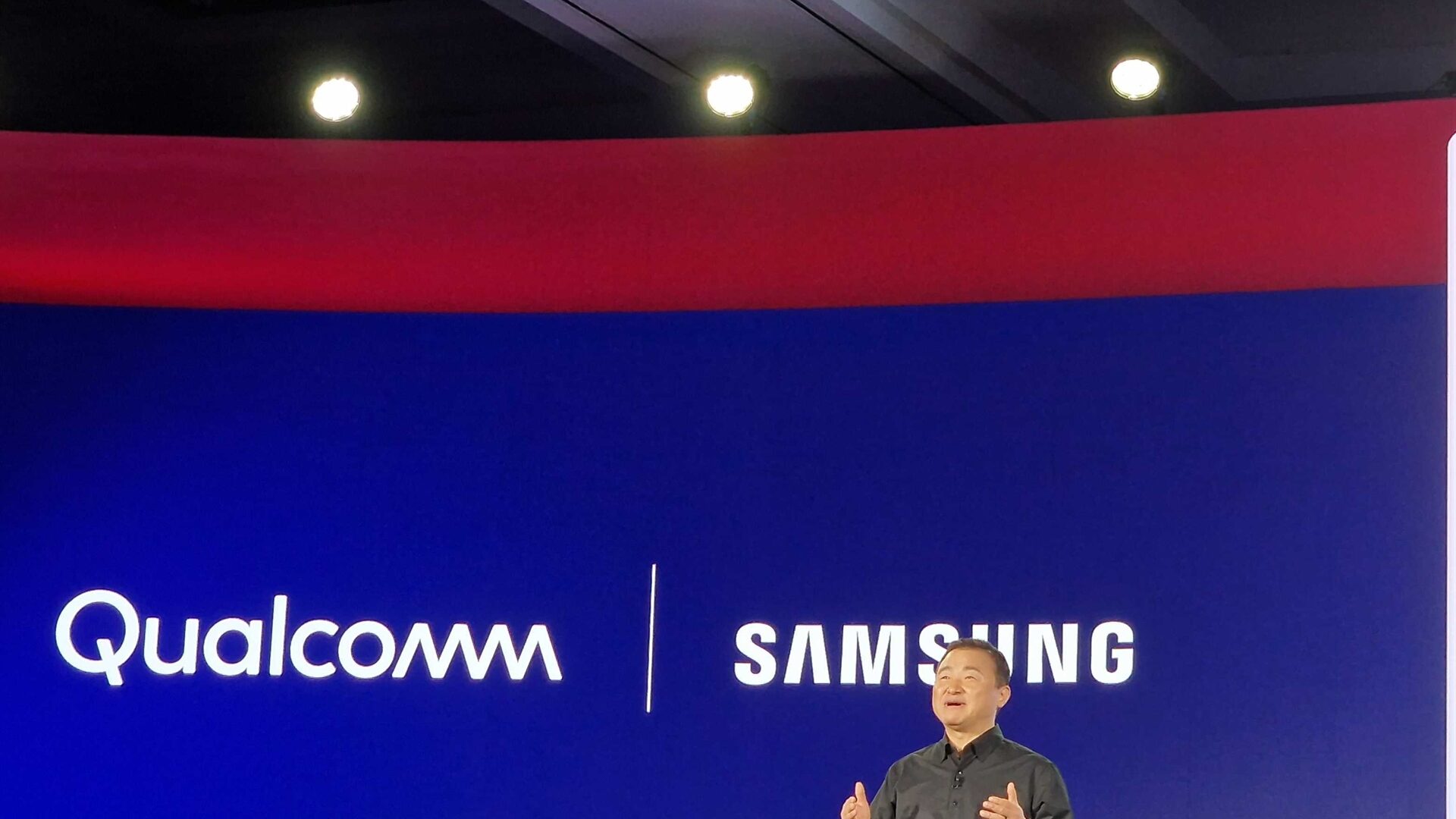Samsung and Qualcomm both attach a lot of importance to their longstanding partnership, evidenced by the fact that the head of Samsung's mobile division, TM Roh, made an in-person appearance on stage during the ongoing Snapdragon Summit 2024, where Qualcomm unveiled the Snapdragon 8 Elite.
“We love Samsung,” Qualcomm CEO Cristiano Amon said as he welcomed Roh on stage. Even though Roh's remarks at the summit didn't include any product-related announcements or teasers, his presence spoke volumes about the relationship at an event where Qualcomm has highlighted its partnerships across various industries as much as it has highlighted its new products.
Qualcomm's co-branding and marketing efforts with its partners have picked up considerably in recent years to shine the spotlight a lot more on the Snapdragon brand, and many of its partners have been happy to share the limelight. Whether that's with Microsoft and Copilot+ PCs, Meta giving shoutouts to Qualcomm during its events, or any number of device manufacturers that prominently advertise their use of Qualcomm's chipsets.
None of these partnerships are perhaps as unique as the one Qualcomm has with Samsung. The Korean giant is often both customer and competitor, as its semiconductor division makes Exynos chipsets that compete directly for orders from the mobile division that buys Snapdragon chipsets from Qualcomm. For example, this year's Galaxy S24 and S24+ use the Exynos 2400 in most markets while the Galaxy S24 Ultra uses the Snapdragon 8 Gen 3 for Galaxy globally. Last year's Galaxy S23 series used the Snapdragon 8 Gen 2 for Galaxy globally across the entire lineup. On the other hand, Samsung's foldable phones have only used Snapdragon chips since day one.
Qualcomm has been facilitating Samsung over the past two years in particular, providing it with a slightly overclocked version of the Snapdragon 8 Gen 2 and Gen 3 chips, which were branded as “for Galaxy” versions. Samsung is far from the only flagship Android device maker that buys top-of-the-line chipsets from Qualcomm, virtually every other OEM does, but this has allowed a crucial differentiating factor to Samsung's devices in a sea of Snapdragon-powered flagships.
Some companies are fine with sharing the spotlight and will actively engage in co-branding and marketing campaigns with their partners. Others feel that lessens their own brand equity and try not to lean into that too much. It's hardly a surprise what side of that line Samsung is on. We got a chance to pick Qualcomm SVP and CMO Don McGuire's brain on the company's partnership with Samsung during Snapdragon Summit 2024, as we were curious to understand whether there's enough coming back from that partnership as much as Qualcomm is putting into it.
“Sometimes you have to lean in a little bit before a partner will lean in with you, we tend to do that” McGuire said, while pointing out that the relationships are different by customer and that Qualcomm has done a lot more collaborating with Samsung at the regional level. “Our relationship is really driven, from a co-market perspective, at a regional level.”
“All the Samsung regions have been super collaborative,” McGuire added, pointing out that they've done a lot of stuff in the US with Samsung's North America marketing team, including co-branded advertising, such as Samsung putting the Snapdragon tag on their TV ads that they've run for the Galaxy S24 series and collaborating on market activations in the US.
“I wouldn't say we haven't been able to have successful co-marketing with Samsung, as we have, it's just been executed differently by region, some of it has gone into television like in the US, some has been out-of-home and in digital like in Latin America, so it just depends.”
On the flip side, Qualcomm has brought Samsung into its current partnerships with the likes of Manchester United. Similar collaborative efforts between the two companies have happened in other regions across the globe, including the key markets of India and Latin America. Qualcomm also includes Samsung in its ecosystem type of messaging as a brand in China, despite the absence of any real mobile market share for Samsung in the country.
While the line between collaboration and competition may often blur between Qualcomm and Samsung, it's undeniable that the partnership between these two companies remains one of the most nuanced and strategically important. So even as the specifics of their co-branding efforts vary by region, the overall synergy is a testament to how two titans of the industry can work together in a rapidly evolving landscape where cooperation has become as critical as competition.





![[Update: QCOMM Statement] ARM rains on Qualcomm’s Snapdragon parade with design license cancellation](https://www.sammobile.com/wp-content/uploads/2024/10/Qualcomm-Snapdragon-8-Elite-5-226x127.jpg)

